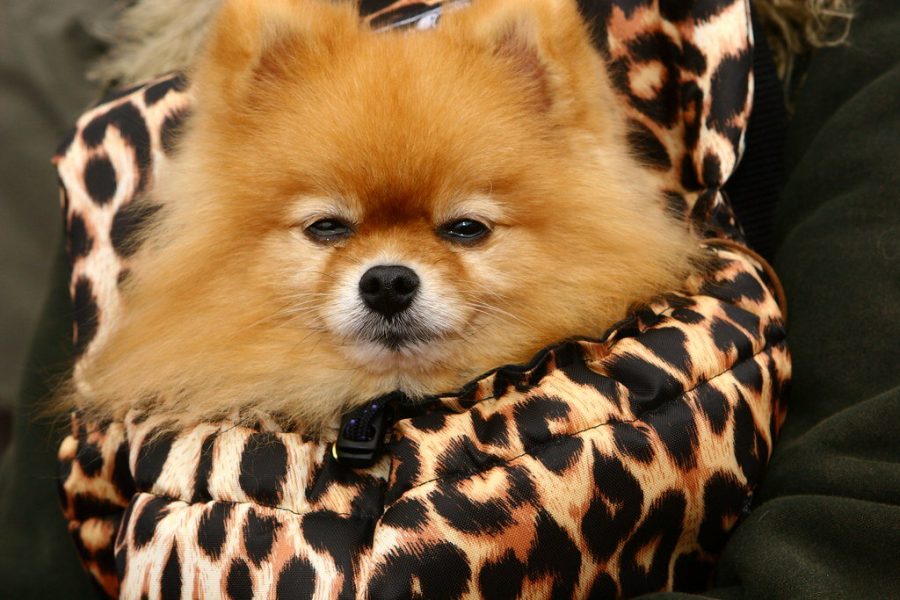Dog’s “low level” Coronavirus Infection Creates New Concerns for Pets During Pandemic
April 7, 2020
Although the quarantined Pomeranian has not shown any common symptoms of the virus and is currently showing signs of improvement, Maria Van Kerkhove of the World Health Organization (WHO) told news reporters at a press conference that they are beginning to examine other pets from the households of coronavirus patients. Hong Kong’s Agriculture, Fisheries, and Conservation Department, or the AFCD, and several other health organizations have advised pet owners to exercise caution with their animals. The AFCD, who initially broke the news about the pomeranian testing “weakly positive,” issued a statement saying “we strongly advise that mammalian pet animals including dogs and cats from households with … infected persons should be put under quarantine … to safeguard public and animal health.”
The reason behind the concern around pets is because it, like so many other things involved with the pandemic, is clouded by a significant level of uncertainty. Doctors and researchers looking into this case are unsure whether this will become the new norm amongst mammalian pets or if this is a rare scenario. J. Scott Weese, a professor studying zoonotic disease at the University of Guelph’s Ontario Veterinary College, notes the high likelihood of the Pomeranian’s case being a novelty, mentioning to The Washington Post “a weak positive would suggest there’s not a lot of virus there.”
Perhaps the biggest concern that has risen from the news in Hong Kong on the infected Pomeranian has been if pets can serve as a vessel for the virus and spread it to humans—a process regarded as zoonosis—or if humans infected with Covid-19 could spread it to animals—or “reverse zoonosis.”
Based on current data, scientists and doctors are skeptical about the possibility of dogs spreading Covid-19. Michael Ryan, the executive director of WHO’s Health Emergencies Program, denied any possibility of pets being directly related to the current spread of the virus. “The [Pomeranian] was a victim, more than others, and we need to establish quite clearly what part animals might play in further transmission.”
The “low level” infection of coronavirus that the Pomeranian in Hong Kong currently inherits does not exactly mean the dog has the ability to spread the virus to people around it. While the virus is known to spread through human contact, there is still no concrete and convincing evidence that proves dogs are capable of enhancing the spread. The Hong Kong Society for the Prevention of Cruelty to Animals (SPCA) said in a statement “members of the public are advised to differentiate that ‘being infected’ does not equal being infectious and capable of spreading the Covid-19 virus.”
Scientists and medical officials, however, have recognized that the coronavirus, like other germs and bacteria, could exist on the skin or fur of a pet. Sheila McClelland, founder of the Lifelong Animal Protection Charity (LAP) in Hong Kong, writes “present evidence suggests that dogs are no more of a risk of spreading (coronavirus) than inanimate objects such as door handles.”
As for the spread of coronavirus from humans to pets, scientists also retain that it is highly unlikely for mammalian pets to contract the coronavirus in general. This, however, as medical professionals warn, does not mean owners should refrain from exercising caution around their pets.
In an interview with Science, Shelley Rankin, a microbiologist at the University of Pennsylvania School of Veterinary Medicine, advises “people infected with [Covid-19] should limit contact with their pets.”
“Wash your hands, and don’t let them lick you on the face. If the virus is in your secretions, and there’s any potential of transmission, these are ways it could be transmitted.”
Rankin also notes that “it is important to include pets in your family’s preparedness planning.” With the current projections estimating the highest number of cases still weeks away, she recommends stocking up on extra pet food and making “your neighbors aware of any feeding, walking, or medications that your pets need” to be safe.
If you do come down with symptoms of the coronavirus, the Center for Disease Control and Prevention (CDC) suggests having “another member of your household care for your animals while you are sick” and avoiding “contact with your pet including, petting, snuggling, being kissed or licked, and sharing food.” If there is no one else to take care of your pets in this scenario, be sure to thoroughly “wash your hands before and after you interact with them” for the sake of your health and theirs.
Health officials advise that it is not necessary to abandon your pets during this time of crisis. By taking the necessary measures recommended by health officials, pet owners can ensure they and their pets can remain safe.








